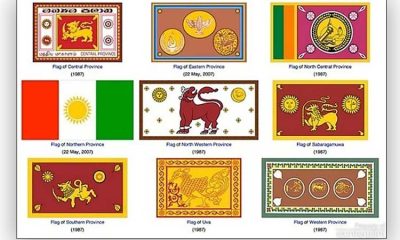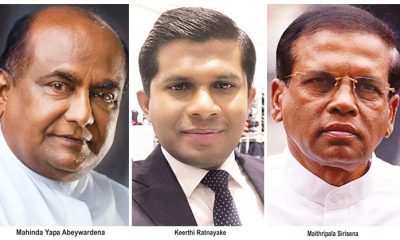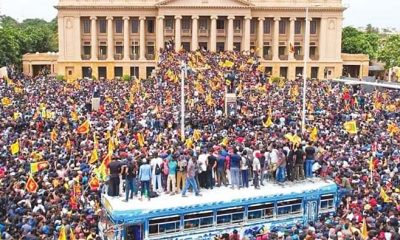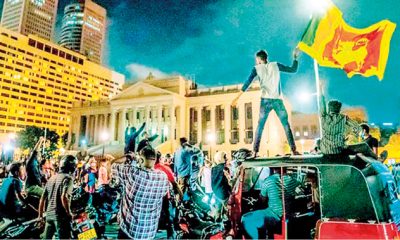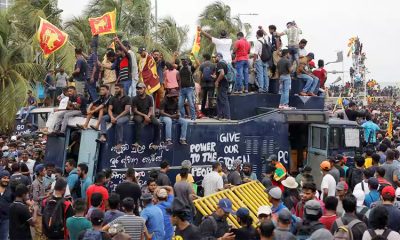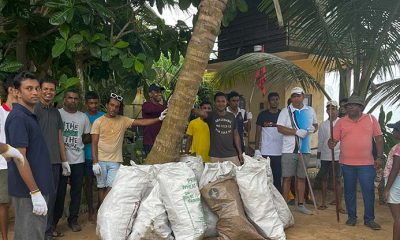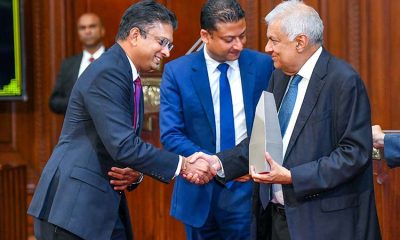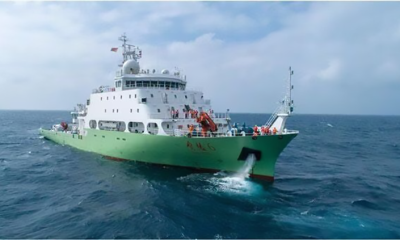Politics
Only a temporary reprieve
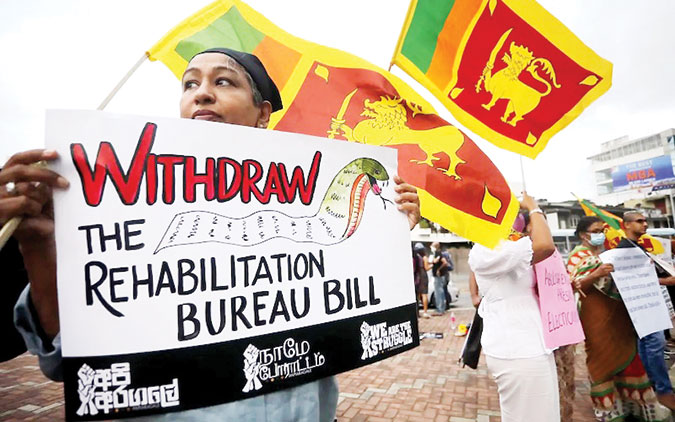
The Supreme Court’s determination on the constitutionality of the Bureau of Rehabilitation Bill
By Ambika Satkunanathan
The Supreme Court’s determination on the constitutionality of the Bureau of Rehabilitation Bill was met with relief last week. While the determination affirms many fundamental principles and constitutional protections, it provides only a temporary reprieve. Human rights activists and legislators who are concerned about the state’s attempts to restrict human rights through laws and institutions should maintain vigilance with regard to this proposed law.
The submissions of the Deputy Solicitor General reveal the government’s thinking on this issue; it exhibits contempt for basic legislative principles and highlight the absence of evidence based policy making that has the well being of the public at its core.
The Supreme Court, in no uncertain terms, found that vague provisions in the proposed law prevent the public from understanding the ambit of the law and stated that if government authorities are “cloaked with power under vague provisions” it can lead to arbitrary action since the officials themselves will not know the extent of their powers.
In response to the Deputy Solicitor General’s submission that the court should consider the provisions as they exist and not speculate whether the law can result in an arbitrary exercise of power during implementation, the court affirmed it has jurisdiction to consider the threat of potential abuse of proposed laws. The court stated it does not have to await actual or imminent infringements by the implementation of the law if the concerns are based on “plausible possibilities”.
At a time when the government is weaponizing the law to restrict fundamental rights, the importance of these assertions by the court, which reiterate that law is made for the public, and hence the public should be able to understand the extent of its application, cannot be overstated.The government justified the (over) broad definitions in the proposed law on the basis it was not possible to be specific because the rehabilitation provided would depend on the category of persons to whom it was being provided. This illustrates the government had little or no idea about who was to be rehabilitation or how when it drafted the law.
The court did not accept the Deputy Solicitor General’s argument that future specific laws would define the category of persons who could be subject to rehabilitation, and said that would be a “dangerous route” to take, thereby recognizing the need for certainty in the ambit of the law.
The government’s claim it will draft laws in the future to specify who will be rehabilitated sounds disingenuous because even at present, there are laws that the government can utilize to send persons to rehabilitation such as regulations issued under the Prevention of Terrorism Act for the rehabilitation of former LTTE combatants.
A few critical issues however remain unresolved even following the Supreme Court’s determination. Although the court examined whether the provisions of the Bill are clear and whether there are adequate safeguards “for the achievement of the objective of the Bill” to prevent arbitrariness in the decision making process, the objectives themselves are problematic.
For instance, the cabinet memorandum on the Bill, which the court referred to and seemed to accept, proposes (compulsory) rehabilitation instead of imprisonment. Yet the reality is that where drug dependent persons are concerned, neither method leads to impactful outcomes. The cabinet memorandum further presents (compulsory) rehabilitation as a solution to prison overcrowding.
In reality, the solution that will lead to meaningful outcomes is the decriminalization of personal drug use and treating it as a health issue by providing voluntary, community-based solutions; not the establishment of more places of detention at which human rights can be violated.
The court states that the Bill’s inconsistency with the constitution shall cease if references to ex-combatants, violent extreme groups and “any other group of persons” are deleted, and Bill is limited to “drug dependent persons” and “such other persons as may be identified by law”. The court proceeds to accept that consent to rehabilitation must be without “duress, coercion or undue influence” and not as “an alternative to protracted remand”. Yet, at the same time, it accepts a contrary position, i.e. that (compulsory) rehabilitation (without consent) is possible through a judicial order.
Globally, including in Sri Lanka, evidence shows that compulsory rehabilitation is counter-productive and leads to quicker relapse. Further, compulsory rehabilitation contravenes human rights standards. It is due to this reason, the UN has repeatedly called upon countries to cease compulsory rehabilitation. The violation of fundamental rights during compulsory rehabilitation is hence not a “fanciful hypothesis” as there is documented evidence to that effect, especially at the military run centers at Kandakadu and Senapura.
The court also does not recognize right of a drug dependent person to leave treatment whenever they choose. Instead, the court says that steps have to be taken to apprehend persons leaving without authorization. Moreover, the court states that the issue of leaving rehabilitation when a person wishes has to be dealt with in regulations issued under the law.
However, if rehabilitation is not punitive, as claimed by the state, persons should be able to enter and leave rehabilitation voluntarily and any law enacted should be only to regulate the functioning of such centers to ensure they adhere to standards related to conditions, maintenance of records and confidentiality, much like the regulation of private healthcare providers.
While the court cannot rule on existing laws, it’s view that the current law dealing with drug dependent persons, i.e. the Drug Dependent Persons (Rehabilitation and Treatment) Act, provides curative means to deal with drug dependence does not align with evidence. Both in principle and practice, the current law is punitive, not curative. The abusive nature of the current law has to be studied in the context of proposed amendments to the Poisons, Opium and Dangerous Drugs Ordinance as well, because it expands the powers of the police and empowers them to refer a person to rehabilitation bypassing a judicial process.
This illustrates the state’s insidious attempt to extend its abusive tentacles, which the court has found to be unconstitutional. Simply put, if rehabilitation is voluntary, there is no need to empower the bureau to rehabilitate drug dependent persons. All that is required is for the government to dedicate resources to establishing centers, as well as ensure that existing centers adhere to human rights standards. Any law drafted to enable this would have to focus on the standards to which the centers have to adhere to ensure the rights of persons entering treatment voluntarily are protected.
The state has proposed the inclusion of once a month visits by the magistrate to the rehabilitation centers as a protection against torture. While this appears progressive, in practice, given the everyday nature of violence at the military run centers in particular, a monthly visit will do little to arrest deeply entrenched abuse.
Further, the purpose of law and processes should be to prevent abuse, rather than only to detect and address it after the abuse has taken place. Although the proposed new section also requires the magistrate to refer the case to the Inspector General of Police to commence an investigation into any cases of alleged torture, the historical failure to hold the police accountable and entrenched impunity raise grave doubts whether this will be adequate protection in practice.
The court reiterates there can be no derogation from the protection against torture enshrined in the constitution. Nevertheless, at the same time, it allows the provision that permits the use of minimum force to compel a person to obey lawful orders to remain intact. Since a person who is drug dependent will not be able to perform many functions during the withdrawal process due to physical and psychological changes they experience, this provision will allow the use of force for behaviour that is normal and to be expected during a withdrawal process.
This provision hence undermines the protection against torture guaranteed in the constitution. Additionally, the denial of evidence based and effective treatment options, such as harm reduction, and instead forcing persons to perform labour, may constitute inhuman treatment according to international human rights standards.
The cabinet memorandum on the Bill does not set out the empirical evidence on which the Bill is based. Nor did the Deputy Solicitor General make submissions in this regard. The result of disregard for evidence based policy making leads to the adoption of regressive positions on rehabilitation, such as labelling persons undergoing rehabilitation as persons with disabilities, which the court rightly states is inappropriate.
Interestingly, the Deputy Solicitor General submitted that the decision to involve the military in rehabilitation is a matter of policy and hence not within the purview of the court. The court found that since the cabinet memorandum on the Bill does not mention the involvement of the military, the Bill is not in line with the policy objective set out in the memo. The court further pointed out the lack of clarity regarding military involvement, i.e., are they employees of the bureau, will the same disciplinary procedures apply to them? It is pertinent to note that through its argument to defend the involvement of the military in rehabilitation, the government has acknowledged that militarization is a government policy.
The Bureau of Rehabilitation Bill is just one building block in the state’s attempt to label certain social groups deviant, criminalize them based on their status/identity, use the law to arbitrarily detain them and subject them to a process of supposed rehabilitation. This process is militarized and will result in grave human rights violations. Though containing many positive elements, the Supreme Court’s determination still leaves room for the proposed law to be used in relation to persons considered drug dependent persons, as it contains many provisions that will result in grave human rights abuses.(Groundviews)
Features
D E M O’Cracy obituary notice fifty years on …..

(This article was published late last year in the run up to the 50th anniversary of the original publication. The ‘author’ of the notice, the late Dr. Riley Fernando, had meticulously kept noted and documents connected to the original publication and these have been used to compile this article. It is repeated in view of the anniversary of the publicaton. – Editor)
By T. Ruth
The original D E M O’Cracy obituary was published in the State controlled Ceylon Daily News on April 24 1974. It is relevant today as it was then 50 years ago.
Curbs on freedom of assembly and of thought and expression
Press censorship and curbs on freedom of assembly were a feature of the early and mid 1970’s. On April 20, 1974 the then United Front Government imposed a curfew to ban a series of islandwide protest meetings organized by the opposition.
The Government sealed the offices of Independent Newspapers Ltd., which espoused the opposition view. Protests by the people and efforts by the Government to curb such protests and moves to stifle the free expression of thought and speech are common phenomena today as they were in the early and mid 1970’s. Moves are afoot to pass legislation to control the use of social media (Online Safety Bill) and other legislation such as the Broadcasting Regulatory Commission Bill and of course the Anti-Terrorism Legislation keeps cropping up from time to time. All this legislation is designed to curb the free expression of thought and speech.
Political and Economic Scenario There are both similarities and differences in the political and economic scenario that prevailed then and now. Foreign exchange shortages and import restrictions, rationing of food, price controls, ceiling on incomes and limits on property ownership were characteristic of the mid 1970’s. Today cost of living has spiraled to levels which are unprecedented. The high levels of taxation imposed upon on the citizenry makes life very hard for many.
Rationing of essential commodities and import restrictions in early to mid 1970’s were prevalent due to socialist policies advocated by the then Minister of Finance, Dr N M Perera. He was not prepared to accept the stringent conditions of the IMF. Instead he chose the route of austerity which meant ‘tightening of belts’ for the people. He believed that this was the way to avoid Sri Lanka becoming a bankrupt State. There were however no allegations of economic mismanagement leveled against him.
A recent Supreme Court judgment held that three Rajapaksa brothers and some of their advisors had breached the fundamental rights of the people by economic mismanagement resulting in Sri Lanka now being a bankrupt State unable to meet its debt obligations to creditors. Those found guilty of breaching fundamental rights of the people are still at large and worse still some are yet enjoying state patronage afforded to them in view of the positions held by them while the citizenry continue to suffer untold economic hardships.
- This is how the popular, mass circulating Reader’s Digest reported then Ceylon’s D.E.M. O’Cracy obituary notice hoax.
Corruption No effort is being made to pass legislation necessary for the recovery of stolen national assets. It is sad that the entire burden of the present economic crisis has to be borne by the populace and no action is being taken to take to task those responsible for corruption. In the early and mid 1970’s corruption was much less rampant than is the case at present.
The background and the ‘modus operandi’ Dr Riley Fernando the author of the D E M O’Cracy was a medical practitioner in Dehiwala. On April 21, 1974 the Government had imposed a curfew to ban mass protests which were to take place on that day. So he had no work in his medical clinic. It was towards evening that day that he got the brainwave to announce the death of democracy by way of an obituary notice.
The next day he went to Lake House and checked on the rates for obituary notices to be published in the Ceylon Daily News. He then sent the obituary notice by post with a money order to Lake House. On April 24, 1974 the most celebrated obituary notice in the history of our newspapers was published in the State run Ceylon Daily News causing roars of laughter from one end of the country to another!
It is believed that the number of copies of the Ceylon Daily News was an all-time record on that day! Everyone was clamoring for a copy of the Ceylon Daily News. It was said rightly or wrongly it had to be reprinted three times over.
Suspects There were many who were suspected of the authorship of this obituary notice. One was a well-known newspaper editor. His office was searched but it drew a blank. On the same day the obituary notice was published Dr Riley Fernando and his wife attended a social gathering at the residence of a fellow doctor. The general view among those present at the event was that there is no one in Sri Lanka who is capable of authoring such an obituary notice. It had to be the work of a foreign hand!
The day after the obituary notice appeared, a friend of Dr Riley Fernando also a fellow doctor whom he had known since his days at the Medical College visited his home with his wife. His greeting was ‘Congratulations! Your latest one is really superb!’ Dr Riley Fernando pretended to be dumbfounded.
‘Come on man’ the doctor went on ‘that obituary notice – of course I know that you did it’. He said ‘one has to have two qualities to do such a thing – firstly the wit and intelligence to think of it and secondly the courage to carry it through. You are the only person with both these qualities!’ he exclaimed.
Wreath of Red Roses A wreath of red roses was delivered to Lake House with a note of sympathy from ‘T. H. E. Masses’. The delivery boy was arrested and interrogated by the Police. He was clueless and was later released.
Interdiction of employees at Lake House Some employees of Lake House had been interdicted following the publication of this obituary notice. The training and upbringing that Dr Riley Fernando possessed was such that he could not bear to see innocent employees being reprimanded for something he had done. He was quick to write an anonymous letter to Hon Felix Dias Bandaranaike who was an important cabinet minister. He was the Minister of Public Administration, Home Affairs, Local Government and Justice at the time.
Dr Riley Fernando and Hon. Felix Dias Bandaranaike knew each other from the time they were in the kindergarten of Trinity College, Kandy. In his letter Dr Fernando requested that the Lake House employees who have been interdicted be reinstated. Otherwise he said he would have no option to own up and face the consequences. The employees were reinstated immediately and the Police were instructed to call off all investigations.
In Parliament – O’Cracy is O’kay! The subject of this obituary notice was discussed in Parliament on May 8, 1974 (Hansard pages 1686 – 1689) with an entire afternoon being taken up for discussion.
One member said that ‘This fellow must be caught and skinned alive on Galle Face Green!’ members of the opposition demanded a debate on the issue.
Dr W Dahanayake the ebullient Member for Galle insisted on having his say about the death of democracy and had to be forcibly removed from the Chamber by the Sergeant-at-Arms for defying the Speaker’s orders asking him to sit down. Parliamentary sittings suspended for five minutes in view of the resulting commotion.
Hon Felix Dias Bandaranaike treated the whole episode as a joke. He made a speech in Parliament. He said that he was away from Sri Lanka on the day on which the obituary notice had appeared but it was customary of him to read the past newspapers following his return to acquaint himself of what had taken place when he was away.
He said that he did so this time too following his return to Sri Lanka. Then he noted that a few of his friends had passed away during his sojourn overseas. One was an old Irishman named O’Cracy who had been living in Sri Lanka for many years. He said that he immediately sent his security officer to the address given in the newspapers to check on the facts and offer his condolences. The security officer had returned saying that the whole thing was a hoax.
He told me ‘There is absolutely nothing wrong with Mr O’Cracy. Not only that – all the members of his family are in good health – Mrs T Ruth and Mr L I Bertie and the rest of them’.
Hon Felix Dias Banadaranaike went on to say that in the past there were some occasions when Mr O’Cracy had some narrow escapes. One was when Dr W Dahanayake was Prime Minister when Mr O’Cracy had actually gone into hiding. Then in 1962, the Hon. Leader of the Opposition [Hon. J R Jayawardene] was stoutly defending persons who were in pursuit of Mr O’Cracy determined to destroy him.
Then in 1971, Mr O’Cracy was really in trouble. He nearly decided to go back to Ireland. He thought the insurgents there were safer than the ones here. Mr O’Cracy is extremely happy [now]. Apparently some of the wreaths which had been sent for his funeral had reached Lake House by mistake.
Dr Colvin R De Silva whose prose can be mellifluous or biting as the occasion demands it referred to the statement made by Hon Felix Dias Bandaranaike on the floor of the House that day as a ‘gem of a speech’.
The country mourns and the world sympathizes There was reference to the D E M O’Cracy obituary notice in the international press. ‘The Hindu’ reported it on April 25, 1974. The ‘Daily Telegraph’ UK made reference to it on April 26, 1974. There were references to it in the media in several other countries too. The Reader’s Digest published it in the November 1974 issue.
Dr Riley Fernando claims authorship of the obituary notice
Dr Riley Fernando left for the UK in 1976 two years following the publication of the D E M O’Cracy obituary notice in 1974. Following the General Election in 1977 there was a change in the Government. Following his return to Sri Lanka in December 1978 he decided to accept authorship for the prank that shook a Government. The receipt of a letter signed by L I Bertie took the Sunday Observer to the Galle Road Dehiwala residence of Dr Riley Fernando to meet the man who announced the death of D E M O’Cracy.
In conclusion
Dr Riley Fernando entered his eternal rest in June 2003 at the age of 75 following a brain hemorrhage.
The documents relating to the D E M O’Cracy obituary notice had been maintained so meticulously by him as if he knew that they will be necessary to author this article fifty years on.
Features
Sri Lanka Hones Its Balancing Act
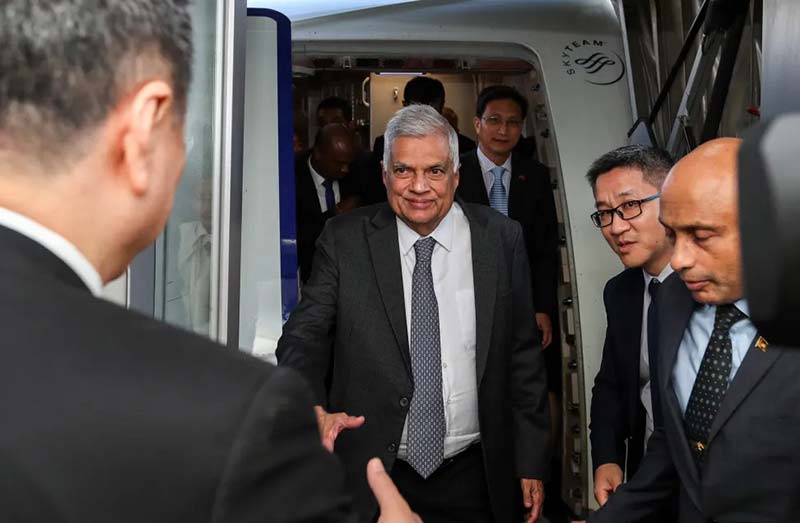
Colombo has demonstrated its own brand of strategic autonomy on issues from Russia’s war in Ukraine to China’s global footprint
By Michael Kugelman
Most South Asian governments tend to have nonaligned foreign policies, balancing their relations with major powers. This maximizes their diplomatic flexibility and ability to operate independently on the world stage, also known as strategic autonomy. India and Pakistan are two prominent examples: They both balance their relations with the United States and at least one of its core rivals (Russia and China, respectively).
But it’s important not to overlook Sri Lanka: In the last two years, Colombo has quietly and successfully navigated global conflict and great-power rivalry. Like many other countries in the region, Sri Lanka has not condemned Russia’s war in Ukraine, even though resulting price shocks exacerbated its own economic crisis in 2022. Yet it has called for an end to the war and announced new measures that step up economic and energy ties with India.
This week, Sri Lanka’s government announced a $1 million donation to assist children in Gaza affected by the Israel-Hamas war, following the establishment of a national Children of Gaza Fund calling for contributions from the Sri Lankan public. The country has previously announced other aid commitments, expressed solidarity with Palestinians, and accused the European Union of “double standards” in its approach to Gaza.
But Sri Lanka is also a close friend of Israel, which supplied arms to the Sri Lankan military during its decades-long civil war. Since the Israel-Hamas war began, Sri Lanka has reached a controversial deal that enables Israel to hire Sri Lankan workers, and its diplomats in Israel have delivered assistance and donated blood. Colombo also joined the U.S.-led military campaign against Houthi attacks in the Red Sea, making it the only South Asian country to do so.
Meanwhile, Sri Lanka has strengthened economic ties with China and already hosts many large Chinese infrastructure projects. Sri Lankan President Ranil Wickremesinghe has also embraced Beijing’s position on key issues, including the AUKUS security alliance between Australia, the United States, and the United Kingdom, which he has labeled a “mistake,” and the term “Indo-Pacific,” which he has called an “artificial framework.”
However, last November, Colombo inked a $553 million deal with the U.S. International Development Finance Corp. to support a port development project in Colombo that is backed by India’s Adani Group. In January, Sri Lanka imposed a one-year ban on Chinese research ships entering its ports. The move came soon after Wickremesinghe rejected Indian allegations that Chinese spy vessels have docked in Sri Lanka.
Sri Lanka’s actions may be driven by a commitment to strategic autonomy, but its motivations are as much about practicality as principle. The country is emerging from an acute economic crisis, and it needs as much financial assistance as it can get. It’s easier to achieve that goal when it works with all the major powers. It’s not coincidental that China, India, and the United States were three of Sri Lanka’s most generous donors during its crisis.
Wickremesinghe must also proceed cautiously during an election year for Sri Lanka. Colombo’s deals with Beijing, including the latter’s 99-year lease on the Hambantota International Port, have led to increased anti-China sentiment in the country in recent years. But the president will also do everything he can to distance himself from his wildly unpopular predecessor, Gotabaya Rajapaksa, who remains a political ally of Wickremesinghe.
Rajapaksa, who heavily courted Chinese investments while in office from 2019 to 2022, published a book last month that lambasts Beijing for providing loans that deepened Colombo’s economic crisis. This gives Wickremesinghe some incentive to show some love for China in order to distance himself from Rajapaksa’s position.
South Asia has become a battleground for geopolitical rivalry, which puts pressure on the region’s nonaligned governments to take sides. But to this point, Sri Lanka has navigated this state of affairs successfully, demonstrating the capacity of states in the global south to reinforce multipolarity in the current world order.
On Sunday, Indian Prime Minister Narendra Modi blasted the main opposition Indian National Congress party—for a diplomatic decision made 50 years ago. In 1974, then-Prime Minister Indira Gandhi negotiated an end to a maritime border dispute by recognizing Sri Lanka’s claim over Katchatheevu, a small island 20 miles off the southern coast of the Indian state of Tamil Nadu.
Modi denounced the decision as “callous” and said the Congress party has weakened India’s “unity, integrity, and interests … for 75 years and counting.” On Monday, Indian External Affairs Minister S. Jaishankar said Sri Lanka had detained more than 6,000 Indian fishermen in the last two decades, suggesting its possession of Katchatheevu has worsened the plight of communities in Tamil Nadu.
The comments are unlikely to cause tensions between India and Sri Lanka. They are clearly part of a tactic to appeal to long-standing grievances and secure votes in a Tamil Nadu, one of a few southern states where the ruling Bharatiya Janata Party has struggled to gain traction. This underscores how Modi—despite being heavily favored to win reelection in national polls that begin this month—is leaving no stone unturned on the campaign trail.
(South Asia Brief – Foreign Policy)
The writer of Foreign Policy’s weekly South Asia Brief and the director of the South Asia Institute at the Wilson Center.
Features
Electing a President: Three against one in the US, and three against three in Sri Lanka
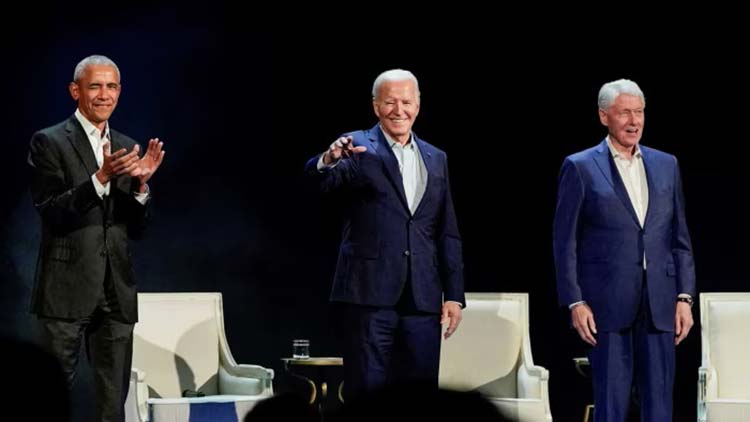
by Rajan Philips
On Thursday, in New York, President Joe Biden and his two Democratic predecessors, Barrack Obama and Bill Clinton, appeared together in a fund raising event to launch Biden’s reelection campaign against Donald Trump, their common foe and America’s ugly manifestation. The fundraiser reportedly netted in over $25 million boosting Biden’s impressive war chest which is said to be more than $150 million. Trump is handicapped with less than a third of that to spend on elections in addition to his personal financial challenges of having to cough up over half a billion dollars in penalties and damages in civil fraud and personal libel cases. The three amigos and the lone fraudster and felon represent the best and worst of America.
That Trump still has more than a fighting chance of winning in November also speaks to the turmoiled state of American society and politics in spite of its economic strength and superpower resources. He is currently facing 88 criminal charges in two federal and two state level trials. Yet he is the presumptive nominee of the Republican Party, the Party of Abraham Lincoln and Theodore Roosevelt. Trump has misappropriated the grand old party and weaponized it to serve his own ends, which primarily are to get elected as president again and pardon himself from the indictments he is facing.
But if he were elected as president for a new term, there will not only be presidential chaos in America and confusion abroad, but also the rolling back of two centuries of incremental advances in American norms and values and processes on everything from – law and order and role of government, minority rights and racial inclusion voting rights and election acceptance, women’s rights and sexual diversity, the environment and natural resources, to education, health and housing.
The effects of his judicial appointments to the Supreme Courts and lower federal courts during his first term have wreaked havoc on the judicial landscape that had been taking shape for over half a century on affirmative action, voting rights, environmental and resource protection, sexual diversity and women’s rights. The high or low point of judicial backtracking came in June 2022 with the overturning of the 1973 landmark Supreme Court ruling in Roe v. Wade that affirmed women’s constitutionally protected right to have an abortion.
A majority of the American people and a greater majority of women are opposed to the overturning of Roe v. Wade by the six conservative majority (five of them Catholics) justices of the current Court. And it is hurting the Republicans politically, but the six justices appointed by Republican Presidents (Trump, Bush Jr, and Bush Sr) are pursuing their ideological convictions in other areas. Perhaps to the embarrassment of conservative Supreme Court Justices and national Republican leaders, Republican state legislators and lower courts with Trump appointed judges have started taking the overturning of Roe v. Wade to its ridiculous extensions.
In February this year, the Alabama Supreme Court quite bizarrely ruled that embryos created through in vitro fertilization (IVF) should be considered children. Earlier in Texas, a Trump appointed conservative federal judge, Mattehew Kacsmaryk, had ordered the removal of mifepristone, a common abortion-inducing drug, from the market in a case filed by anti-abortion activists and doctors. The drug has been in use for decades after approval by the US U.S. Food and Drug Administration, an agency whose decisions are taken as guiding standards throughout the world. The mifepristone case reached the Supreme Court after appeal by the Federal government, and during oral arguments last week a majority of the Justices including conservatives clearly indicated that they are not in favour of upholding the Texas ban of the pill. The Supreme Court ruling that will come in June is expected to overturn the Texas ban by a seven-two majority.
American Anomalies
Trump is certainly keeping the Supreme Court busy, for on April 22 the Court will hear arguments to determine if a former President could be tried for alleged acts of crime during his time as President. The case is all about Trump and his exertions to overturn the results of the 2020 presidential election by inciting an insurrection on the US Capitol on January 6, 2021, when the US Congress was convening to ratify the election of Joe Biden as President. That he is a candidate in the very next election in 2024 is a uniquely American anomaly.
The anomaly is falsely premised on democracy – to let the people decide if Trump could be elected as president in spite of all that is known about him. He should have been barred from contesting and even incarcerated for violating the constitution and his oath of office to uphold it. Scores of ordinary citizens who participated in the insurrection at the urging of Trump have been and are being tried and punished including with jail terms. Lawyers who unethically worked on his brief are being professionally held accountable and are having their licenses revoked.
But Trump is a candidate, perhaps the only person to be a candidate for a third time after Franklin Roosevelt and Richard Nixon. Roosevelt, the war time president, won all three elections and died in office during his third term. But his three wins led to the 22nd Amendment in 1951 that brought in the two-term limit for presidential office. Nixon lost the first election to Kennedy, won the next two. He resigned in disgrace before his second term was over, but in abidance with the Constitution. Trump knows no shame and he is flouting the Constitution with impunity, hoping for permanent immunity by winning the election in November.
In a straight election contest, Trump has no chance of winning against anyone. He came up short, in fact very short, in the popular vote count both against Hillary Clinton in 2016 and Joe Biden in 2020. He eked out a victory against Hillary Clinton thanks to the evanescent mechanism of the Electoral College. Four years later Joe Biden turned the tables on Trump. After four more years, America is literally back to square one for electing a new president – but from the same two candidates as last time. Biden is almost certain to win again the popular vote, but the question is whether he can hold on to the handful of swing states that tilt the balance in Electoral College tally. It is also the concern for Democrats and everyone else who do not want to see another Trump presidency. It is that concern that brought the two former presidents, Clinton and Obama, to join President Biden in Thursday’s gala fundraising event in New York.
Biden, older than his two predecessors, can still pack a good punch in his speech as he showed in his annual State of the Union address to the Congress in January. But he could very much use the two former presidents to enthuse and energize the base to turn out to vote. Clinton and Obama are supremely, but differently, gifted campaigners. While Obama takes flight with his soaring eloquence, Clinton can charm and bring an audience to its feet by offering the folksiest of explanations to the most complex of issues. Obama is expected to be fully engaged in the campaign targeting young audiences, while joining Clinton and drawing on their popularity among the two communities, to canvas the African American and Latin American vote,.
Biden’s four year record as president is not at all a bad record to run on by American standards. It is indeed a good record in the circumstances. In fact, in domestic policy and social welfare programs Biden is easily the most consequential president after Lyndon Johnson, who was so himself after Franklin Roosevelt’s New Deal regime of policies. American foreign policy has never been non-controversial even in the best of times. But purely from a domestic election standpoint, Biden should be able to weather out the American political effects of the war in Ukraine and the devastation of Gaza. From any standpoint, the alternative to Biden would be dreadful. For the pruriently curious, there is also this year a Kennedy gadfly in the American ointment. That is better left for the social media.
Three against Three
Sri Lanka has a presidential system that has lasted 46 years despite all the efforts to ditch it lock, stock and barrel. Thankfully, Sri Lanka is spared of the Trumpian shenanigans of presidential politics. Perhaps the customary inertia of traditional societies provide a deterrent to upstart upheavals like Trumpism that is tantalizing the forever immigrant society of America. That does not stop quite a few Sri Lankans and others from being fascinated by and even supporting Trump. Hitler too had his admirers beyond what was then wholly non-immigrant Germany, and was recommended as a presidential role model just five years ago in Sri Lanka. That was for Gotabaya Rajapaksa who once said that he had made a study of Trump as a non-career politician. Some study, some politician! All that saga is now reduced to a weird book by a ghost writer blaming others of conspiracies.
It would be wrong to say that the presidential system alone produced a Trump in America and a Gotabaya in Sri Lanka. But it would be mostly correct to say that they would have been vetted out in a parliamentary system. Historically, America stumbled on the presidential system because the only model that was available at the time of the American revolution was the British political system, which then was mostly monarchical and only nascently parliamentary. The presidential system was a negation of the monarchy that the Americans had liberated themselves from. The model was invariably adapted and replicated in the neighbouring new countries to the south.
A much more evolved parliamentary system with only a long distance monarchical link arrived in Sri Lanka and big neighbour India. It evolved under local conditions in Sri Lanka and enabled itself to sever the monarchy and create a new republic. The imposition of the presidential system came shortly after. The question of abolishing it is still an active question and its latest manifestation is in election sequencing.
Advancing the parliamentary election is seen as a precursor to abolishing the presidency. At the same time, the long-titled Minister of Justice, Prison Affairs and Constitutional Reforms, the loquacious Wijeyedasa Rajapakshe, is musing about constitutional changes including the establishment of a Senate and electoral reforms. He has not mentioned abolition. We have been down this road before, and nothing may come out of it as usual.
As for certainty, it seems almost certain that the presidential election will be held sometime between mid-September and mid-October. What is not clear is if there will be a parliamentary election before that. The SLPP parliamentarians seem agitated to pass a resolution in parliament asking the President to dissolve parliament and have a general election before the presidential election. That is their best route for re-election and hence their anxiety.
But no one knows what the President will do. The joke on the street is that even the President is not sure what he might do. And conveniently so. Seriously, however, it is a Sri Lankan anomaly that the timing of a parliamentary election is entirely the business of the executive even if it is after two and half years of the last election.
The Election Commission, twice bitten by the Executive over local government elections, seems not at all shy about being prepared to conduct both the parliamentary and presidential elections within the current year. The EC Chairman R.M.A.L. Ratnayake is on record as having said that much. Unless a parliamentary election is held first, it now seems likely that there would be three presidential candidates – Anura Kumara Dissanayake, Sajith Premadasa, and Ranil Wickremesinghe. Three against Three.
Anura Kumara Dissanayake is the only openly committed candidate so far. Sajith Premadasa, although the presumptive candidate of the SJB, often sends mixed signals saying that he/they are ready for either election. Ranil Wickremesinghe might be feigning a Nasser-like reluctance and hoping to be sponsored by a grand alliance, but the real pressure on him will come from the SLPP and the Rajapaksas.
It would fundamentally be mendicant pressure from Basil and Mahinda to Ranil – to save their bacon, one last time, in spite of, or because of, all the previous transactions between them. Ranil’s calculation will be about the vote catchment that the Rajapaksas can muster. In any event, they would bring him more votes than he or the current UNP could ever garner. The question is if that would be enough in a three way contest to go over the 50% mark in the first count. The question applies to all three candidates, and deadlock is a possibility.
-

 Business5 days ago
Business5 days agoSri Lanka Resorts of Cinnamon Hotels & Resorts mark Earth Day with impactful eco-initiatives
-

 Business6 days ago
Business6 days agoDialog Axiata recognised as the Most Significant FDI Contributor by BOI
-

 Business6 days ago
Business6 days agoUNESCAP Technical Cooperation Highlights Report flags significant strides in its partnership with Sri Lanka
-

 Business7 days ago
Business7 days agoComBank crowned ‘Best Bank in Sri Lanka’ by Global Finance for 22nd year
-

 Business7 days ago
Business7 days agoCinnamon Lakeside Colombo welcomes Nazoomi Azhar as its new General Manager
-

 News4 days ago
News4 days agoGerman research ship allowed Sri Lanka port call after Chinese-protest led clarification
-

 News4 days ago
News4 days agoSri Lankan Oil and Gas exploration grinds to a standstill amid protracted legal battle
-

 Editorial6 days ago
Editorial6 days agoShocks from Bills


